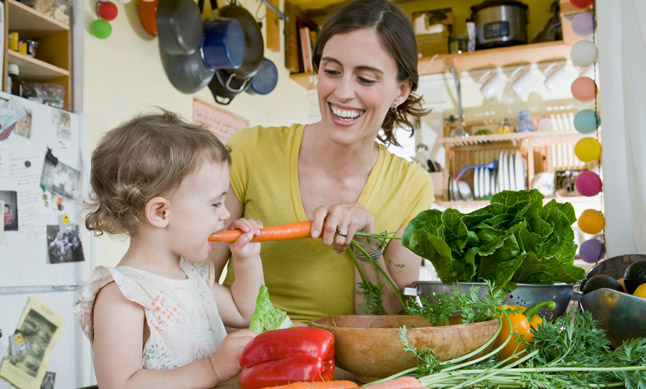Stage

When your little one is finally ready to move beyond breastfeeding or the bottle to solid foods, the idea of introducing new sources of nutrition can be an exciting, but often confusing, proposition. What foods are best for baby’s first real eating experience and in what order should you include them? You’ll find many contrasting opinions regarding the veggies, fruits, grains and meats that are essential to your growing child’s diet. While each of these food groups is important for development and growth, deciding what is best to feed your baby first is a source of much debate.
First things first. Consult with your pediatrician to be sure your child is ready to take on solid foods – typically this will be at five to six months of age. Iron-fortified cereals like rice, barley and oats are a natural starting point. So what food group comes next? Here’s where it gets a little murkier. When my wife and I were going through this growth experience with our baby daughter, our pediatrician suggested experimenting to see what foods peaked our child’s eating interest. The problem was, she liked some foods much more than others – she seemed to only want pears and other fruits, for instance – and we worried that she was missing out on important vitamins and nutrition.
Interestingly enough, this a common challenge, and there are differing schools of thought. According to many pediatricians, the trick is to introduce baby to the blander foods, such as vegetables and grains first. After baby develops a taste for these, fruits and other foods that naturally have more flavor should come shortly after. This way you help to avoid a “fruits first = veggies never” reaction in your child. However, the American Academy of Pediatrics recently published findings that indicate while babies are born with a preference for sweets, the order of introducing foods does not change this.
So what’s the right solution? Like most things regarding your baby, there is not a “one-size-fits-all” answer. You’ll find that working closely with your pediatrician and paying close attention to your little one’s eating habits will help you to develop a nutrition plan that is as individual as your child. And by the way, our daughter is now a huge veggie lover – who would have thought? Bon appetit!






